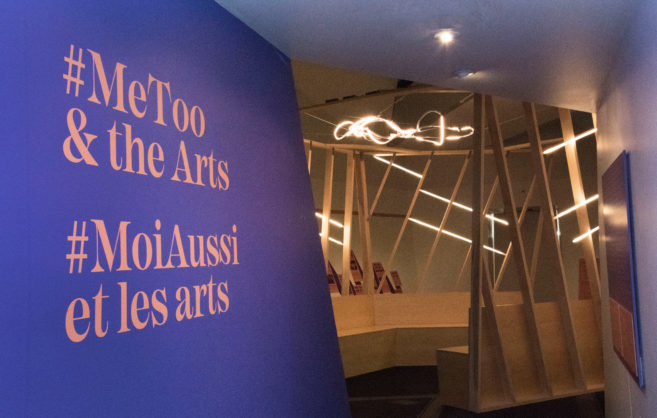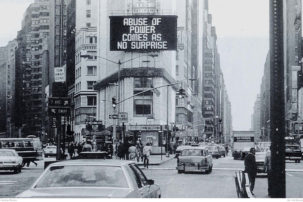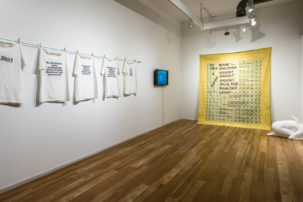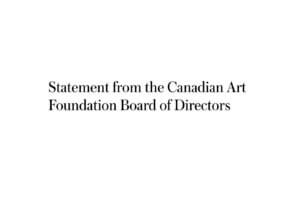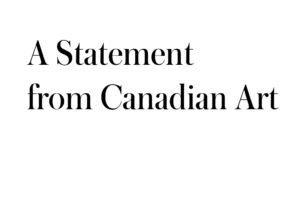When artist Otto Muehl died in 2013 at the age of 87, the New York Times’ headline declared him an “Actionist Artist And Provocateur.” A few months later, a blog post for the Getty Research Institute in Los Angeles, where many of Muehl’s papers are stored, stated that a study of his later-career sketchbooks testified to his “remarkable artistic ability as a draftsman and painter.”
But Otto Muehl also went to jail for more than six years in the 1990s for sexual offences with minors and drug offences at the Friedrichshof Commune, which he founded in 1972. And while some other media outlets, like Reuters, acknowledged this in their own obituary headlines for him (“Viennese artist and convicted pedophile Otto Muehl dies”), and some art magazines like Frieze acknowledged it as part of a review of a 2010 Muehl survey in Vienna, many in the art world remain unaware of Muehl’s abusive behaviour, and its profound fallout. Or at least, many seem reluctant to address it outright.
Some of the traumatic impact of Muehl’s abuse will come to light this week, however, at Toronto’s Rendezvous with Madness—one of the biggest, and first, art and mental health festivals in the world. Opening October 10 on World Mental Health Day, the festival is a program of Workman Arts, a non-profit arts and mental health organization.
One of this year’s Rendezvous with Madness programs includes the Canadian premiere screening of My Talk with Florence, a 2015 feature documentary interview with Florence Burnier-Bauer, who is a survivor of Otto Muehl’s abuse at Friederichshof, as well as of earlier abuse in other family settings. The film screens October 12 at 8:30 p.m. at the Art Gallery of Ontario, with a panel including director Paul Poet following afterward.
“We programmed My Talk With Florence by Paul Poet after I saw the film while I was on the Jury at ARKIPEL Jakarta Documentary and Experimental Film Festival,” says Scott Miller Berry, Workman’s managing director and a member of Rendezvous program committee, in an email. “I brought the film to Rendezvous’ team to consider, as I think its the ‘perfect’ Rendezvous film—it’s deeply concerned with trauma and its after-effects (the most common of mental health issues connected to abuse survivors). It’s also formally and structurally incredibly rigorous and well-created.”
This Canadian screening of My Talk With Florence is coinciding with a time when “abusive men (in and out of the art world) are finally meeting some level of reckoning,” states Berry. “That the abuser, in this film’s case, is celebrated Viennese Actionist Otto Muehl is even more topical given activism around art-world sexual abusers / accused abusers such as Raghubir Singh, Carl Andre, [and] Chuck Close.”
Also at the festival this year is a short-film program titled #MeToo: Dystopian Reality. Among the films featured are Rape Card, a 2018 short by Nathan Hughes-Berry and Madeleine Sims-Fewer that is set in a future in which rape is legal; Khaula Malik’s 2016 documentary How the Air Feels, about “bringing an abusive spiritual guru to justice”; and Anna Linke’s 2015 film Meeting Between Two Parked Cars. The program, which screens October 13 at 9:30 p.m. at Workman Arts Theatre, was put together by Anastasia Akulinina and Katelyn Gallucci.
“Sexual assault and gender discrimination is something that you just can’t ignore in 2018,” says Anastasia Akulinina, program coordinator at Rendezvous, in an email. “Katelyn and I had conversations about #MeToo even before we started programming. “Once we started prescreening, both of us noticed that the themes of sexual assault, inequality and prejudice against women and survivors were predominant in so many shorts.”
For more than 25 years, the Rendezvous with Madness festival has shone a light on mental health issues through art, film and performance. And it’s important, this year’s programmers think, to emphasize the way sexual assault impacts mental health.
“I would say that the primary connection between sexual assault and mental health is of how an intimate traumatic experience can change the way we experience ourselves and the world around us,” says Katelyn Gallucci, program assistant for Rendezvous, in an email. Another connection between mental health and sexual assault, she emphasizes, is “the invalidation that sexual assault has even occurred. The fault or trauma at hand is not only in the performance of a nonconsensual act, but in society’s willingness to oppress a victim’s truth by systematically dismissing the brutality of sexual assault.”
The Rendezvous with Madness festival runs until October 21 at various Toronto venues. Other programs at the festival include “Bursting Bubbles,” a visual-art exhibition featuring women and nonbinary artists at Toronto Media Arts Centre curated by Claudette Abrams, and Erika Batdorf’s performance The Red Horse is Leaving, a portrait of her artist mother Thaya Whitten, taking place at Artscape on Queen Street West.

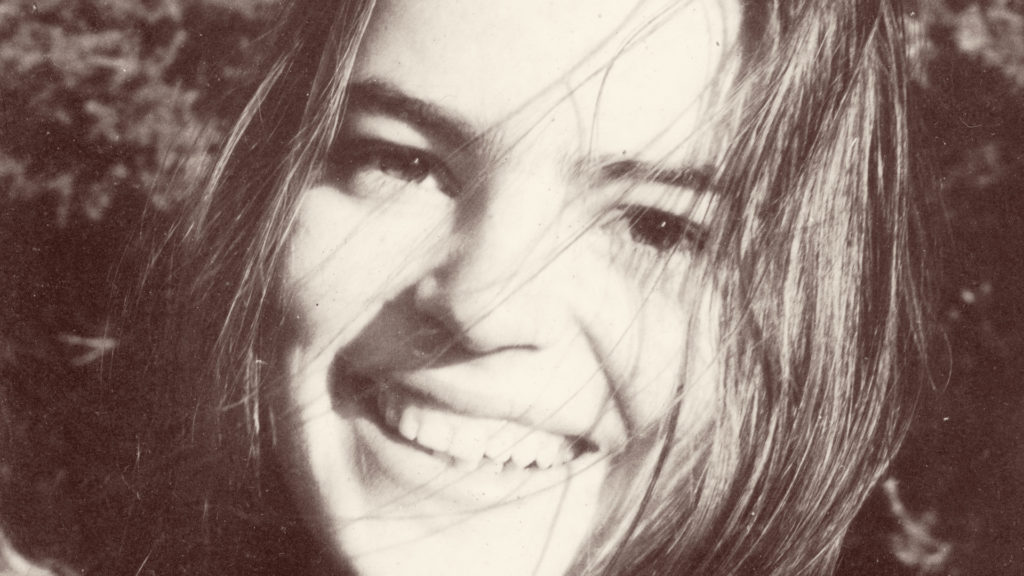 An archival photo of Florence Burnier-Bauer, survivor of abuse by artist Otto Muehl and subject of the film My Talk With Florence, having its Canadian premiere at the Rendezvous with Madness festival. Photo: Facebook/My Talk With Florence.
An archival photo of Florence Burnier-Bauer, survivor of abuse by artist Otto Muehl and subject of the film My Talk With Florence, having its Canadian premiere at the Rendezvous with Madness festival. Photo: Facebook/My Talk With Florence.
